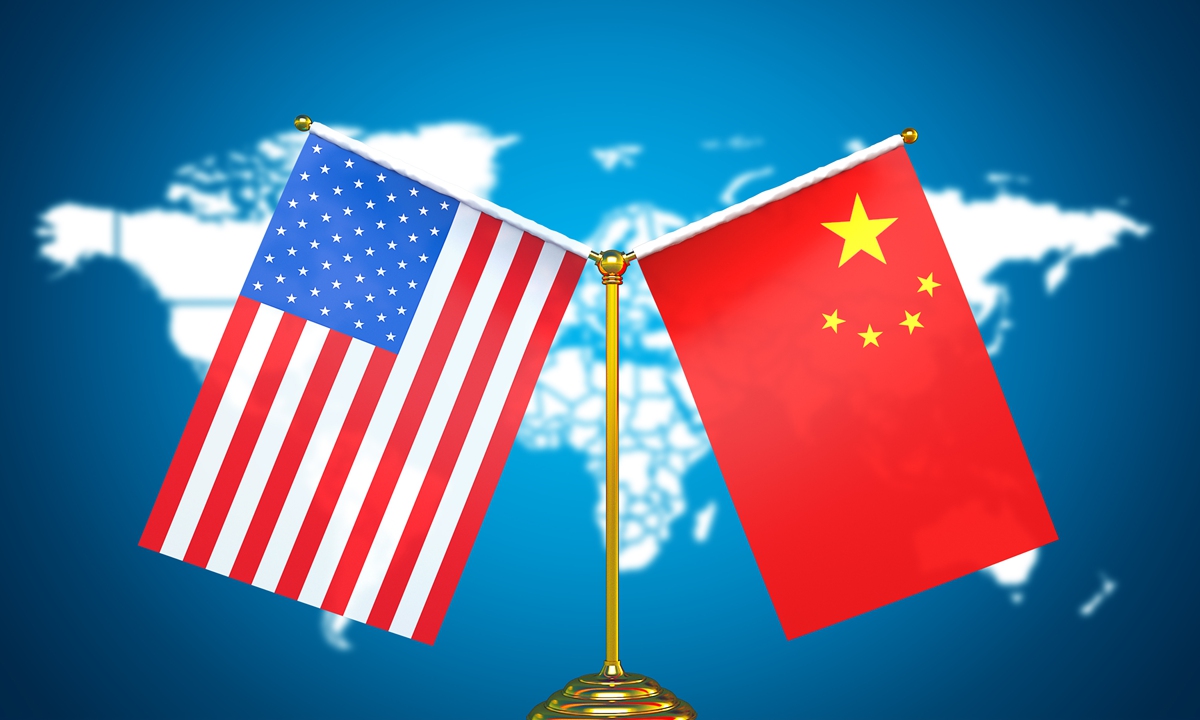
Photo: VCG
At the invitation of US Treasury Secretary Janet Yellen, Chinese Vice Premier and lead person for China-US economic and trade dialogue He Lifeng, who is also a member of the Political Bureau of the Central Committee of the Communist Party of China (CPC), will visit the US from November 8 to 12. According to information released by the US side, He will hold a two-day bilateral meeting with Yellen in San Francisco on November 9 and 10. It is foreseeable that the economic and trade teams of both sides will have in-depth discussions on a large number of specific topics. Previously, Wang Yi, a member of the Political Bureau of the CPC Central Committee and Foreign Minister, was invited to visit the US and also had long and intense talks with the US side on a wide range of diplomatic issues.
International public opinion has generally paid attention to the fact that on the second day after the talks between He and Yellen, the Asia-Pacific Economic Cooperation (APEC) informal leaders' meeting will kick off in San Francisco. Whether the heads of state of China and the US will hold bilateral talks during the meeting has become a topic that has garnered even more attention than the APEC meeting itself. The intensive high-level talks between China and the US in the fields of diplomacy, economy and trade, as well as consultations in areas such as arms control, have also led to speculation that these talks are expected to lay the foundation for a possible heads of state meeting.
Regarding this issue, the spokesperson of the Chinese Ministry of Foreign Affairs reiterated during a press conference on Wednesday that the two sides have agreed to work together for the meeting between the two presidents in San Francisco. In the meantime, it won't be "plain sailing" to San Francisco, nor can we leave it to "autopilot" to get us there. That means China has a clear understanding of the obstacles that may be faced on the path to San Francisco. China has urged the US that we cannot rely on "autopilot." This underlines the uncertainties of the potential meeting, and realizing it requires greater sincerity and more practical actions from the US side that meet China halfway.
How to do it? The Chinese side has already stated that both sides need to earnestly return to what was agreed in Bali, act on the common understandings of the two presidents, rise above disruptions, overcome obstacles, expand common understandings and accumulate outcomes. Obviously, in these aspects, the Chinese side is not satisfied with the performance of the US side, as the US has not reversed its inconsistent words and actions. Moreover, based on the experience of the past two years, whenever there is a turning point in US-China relations, the US side may create some trouble. There is a dark force in Washington that is undermining US-China relations, and the more critical the moment, the more active they become. The White House has limited control over them, and they are a major uncertainty that the current US-China relationship must face, requiring the US side to overcome and eliminate disruptions.
In the month or two before June, the US side kept complaining that the Chinese side did not answer their calls and refused their communication requests. Now, the communication between high-level officials of China and the US indicates that it is not intentional obstruction by the Chinese side, but rather the US side may be using communication as a gesture to show off to the world, lacking sincerity. We hope that the US can use political wisdom and courage to prevent China-US relations from being hijacked by a small number of extremist voices and adopt a truly responsible strategy toward China.
After all, it is still the same old problem, that is, the US has failed to implement the consensus reached by the Chinese and US presidents. It hasn't delivered on the "four noes and one no intention" or "the five noes and four no intentions" commitment made by the US leadership, but it instead has even acted in the opposite direction. For example, the tariffs imposed on China during the Trump era were still used by Washington as a geopolitical card, although this card has been worn out and has no effect on China. In addition, the US hopes that American companies can gain more profits from the Chinese market. Of course, China is happy to see American companies develop better here. The problem is that Washington's "decoupling" and "high fence, small yard" approaches have tied heavy and unnecessary political shackles to multinational companies.
The US must demonstrate greater sincerity, provide a convincing explanation for its failure to implement the consensus reached by the two heads of state, and clarify its attitude toward the core interests that China has repeatedly emphasized, so as to create a better atmosphere and conditions for future possible meetings between the two heads of state.




